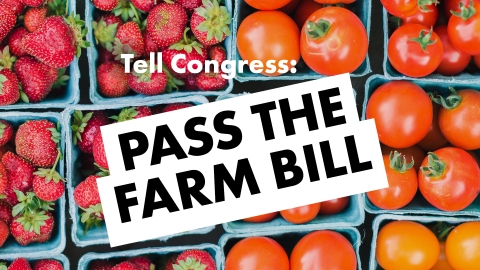
Far too many people experience hunger in our wealthy nation—including 12 million children who are food insecure. And around the world, the number of people who are severely hungry has increased by 33 percent. Climate change threatens to increase these numbers—as global temperatures and extreme weather events rise, the conditions make it more difficult for farmers to grow food and for those facing hunger to get it. Our current agricultural system contributes to these joint crises—prioritizing corporations’ profits over people and our planet.
The 2023 Farm Bill is a critical opportunity to improve food security and nutrition for people and promote climate resilience in the U.S. and across the world. As Congress begins working on this important legislation, we must urge them to prioritize the needs of our communities and the climate, not corporate profit margins. These include:
- Expand access to SNAP and other nutrition assistance programs and remove barriers to accessing vital food assistance to prevent hunger;
- Fund small-scale farmers, regenerative agriculture, and climate-friendly practices, from planting to packaging to delivery;
- Eliminate food waste and invest in urban agricultural projects that allow all people access to locally-grown, sustainable fresh food; and,
- Protect the dignity, health, and safety of those responsible for working the land.
- Fund international programs that train farmers to adapt to climate change and provide emergency and developmental support to more than 4 billion people around the world.
This is our chance to improve this crucial legislation. It’s time for Congress to invest in long-term solutions that address hunger, food access, and climate resilience.
